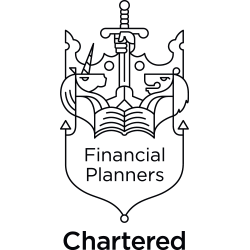Your 2020 Budget summary
After delays and the appointment of Rishi Sunak as Chancellor just weeks ago following the resignation of Sajid Javid, the Budget was finally delivered this afternoon.
It’s the first to be given since the UK left the EU on 31st January 2020, with the country now in a transition period, and comes amid the coronavirus outbreak. Both featured in Sunak’s address, with coronavirus being named as the key challenge facing the country today, noting that there is likely to be a temporary economic disruption, and playing a role in several of the announcements.
The economy and public finances
The headline figures from the Office of Budget Responsibility haven’t taken the impact of coronavirus into account. With this in mind, GDP is forecast to increase by 1.1% in 2020 and 1.8% in 2021. Wages are expected to continue growing in real terms throughout the current government too.
Coronavirus response
Sunak opened the Budget with how the government will respond to the growing coronavirus threat.
At the top of this list was the widening of Statutory Sick Pay (SSP). All those advised to self-isolate, including individuals that aren’t showing any symptoms will receive SSP from day one, rather than the standard day four. For self-employed and gig economy workers, access to benefits has also been made easier.
Also coinciding with the Budget, was an announcement by the Bank of England this morning that the base rate has been cut from 0.75% to 0.25%. Again, this aimed to support both businesses and households amid the coronavirus outbreak.
Several measures aimed at providing support for business were also announced.
Business
Continuing with the temporary measures in light of the coronavirus, SSP for businesses with fewer than 250 employees will be met by the government in full for up to 14 days per employee. Small firms will also be able to access ‘business interruption’ loans of up to £1.2 million to protect companies from the impact. The UK’s smallest 700,000 businesses may also be able to access a £3,000 cash grant, paid by local authorities.
In addition, business rates will be abolished for firms in the retail, leisure and hospitality sectors with a rateable value below £51,000. This means almost half of all business properties in England will not pay business rates this year.
Business owners that benefit from Entrepreneurs’ Relief will be relieved to know that, despite calls to abolish it, the tax relief remains. But the lifetime limit on gains eligible for relief is being drastically cut from £10 million to £1 million. It’s expected that 80% of business owners will be unaffected but it could have a big impact on the remaining 20%.
There will be no changes to the UK’s Corporation Tax, which will remain at 19%.
Personal finance
No immediate changes were announced in the National Living Wage (NLW). But the government did announce a target for the NLW to reach two-thirds of median earnings by 2024. Based on current forecasts, this would lead to an NLW of over £10.50 an hour in 2024.
The National Insurances threshold will increase from £8,632 to £9,500. It will provide 31 million people with a tax cut, saving a typical employee £104.
It’s also good news for those building a nest egg for children. The Junior ISA annual subscription limit will more than double in the new tax year to £9,000. However, the adult ISA subscription will remain the same at £20,000.
Pensions
Following headlines focused on the impact of the tapered annual allowance on pensions, this has been addressed in the Budget. The tapered annual allowance, which reduces how much you can tax-efficiently save into a pension each year, has been increased by £90,000 each. The ‘threshold income’ will now be £200,000 and the ‘adjusted income’ £240,000.
This is good news for many high earners, but those that exceed these thresholds could find their annual allowance is cut even further. Previously, the annual allowance could be reduced to a minimum of £10,000, this has been cut to just £4,000.
The lifetime allowance for pensions has also increased in line with inflation, rising to £1,073,100 from £1,055,000.
Alcohol, tobacco and fuel
Duty rates on beer, spirits, wine and cider will be frozen, as will fuel duty. Business rate discount for pubs to rise from £1,000 to £5,000 too.
However, duty rates on all tobacco products will increase by an amount equal to inflation plus 2%.
Health and education
Compared to 2019/20. NHS England will receive a cash increase of £34 billion a year by 2024. The Immigration Health Surcharge that new arrivals to the UK pay to fund the NHS will also rise to £624, with a discount rate of £470 for children.
An additional commitment of £7.1 billion to fund schools in England by 2022/23 was also announced. This will increase the minimum per-pupil amount to £3,750 for primary schools and £5,000 for secondary schools in 2020/21. On average, schools will see an increase of over 4% in funding per pupil compared to the 2019/20 budget.
Housing
For non-UK residents, a Stamp Duty Land Tax (SDLT) surcharge will apply. It will add 2% to standard SDLT when purchasing residential property in England and Northern Ireland from 1 April 2021. It aims to control house price inflation.
Questions?
If you have any questions about the Budget and how it might affect you, please do not hesitate to get in touch.

